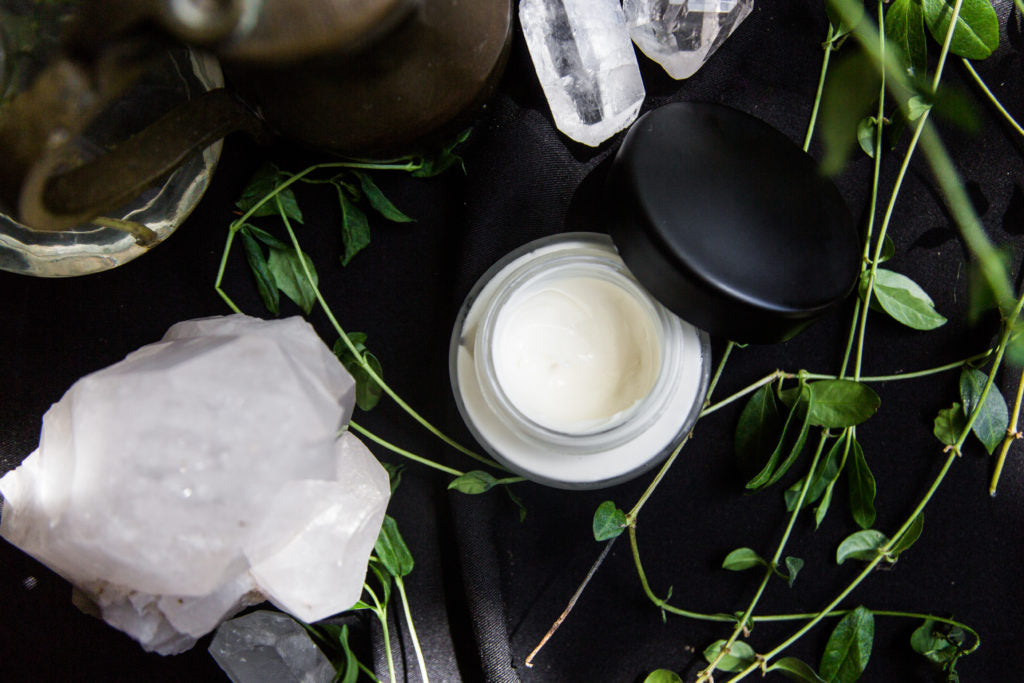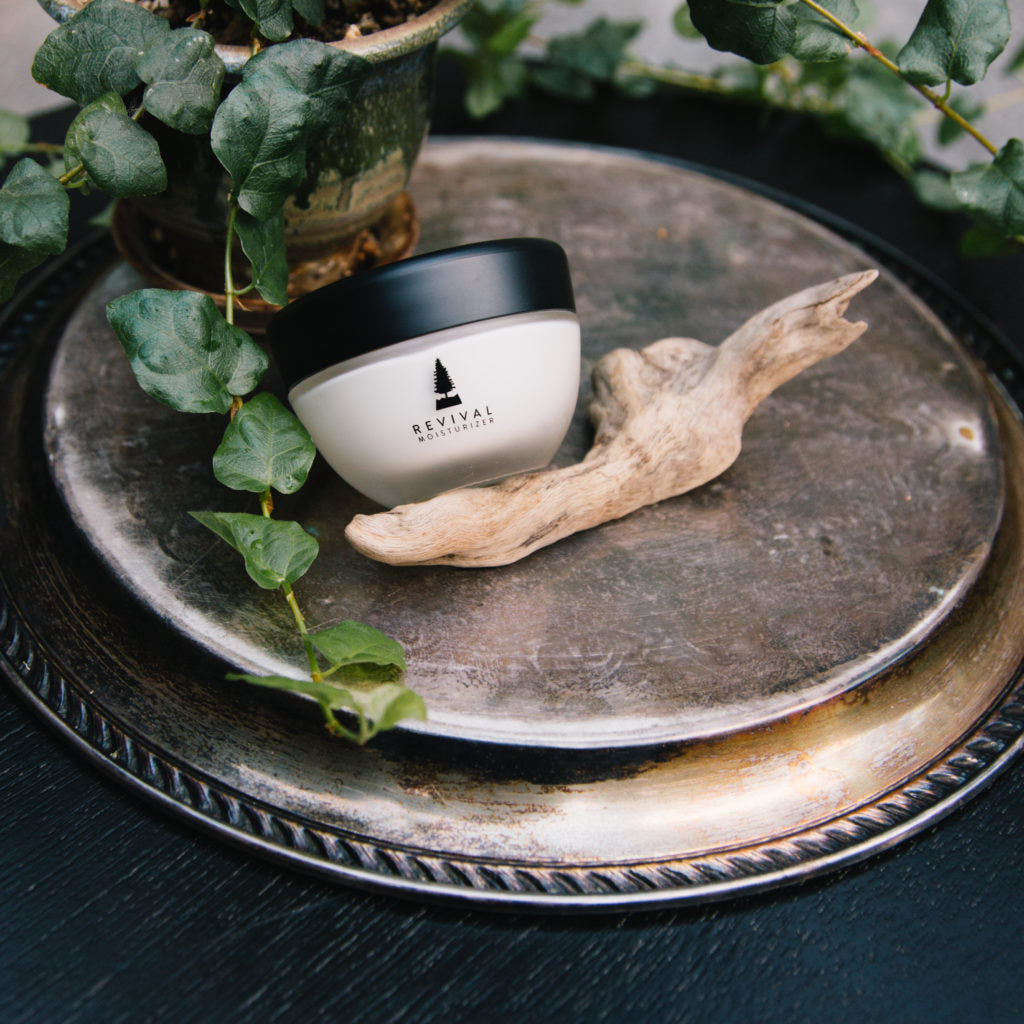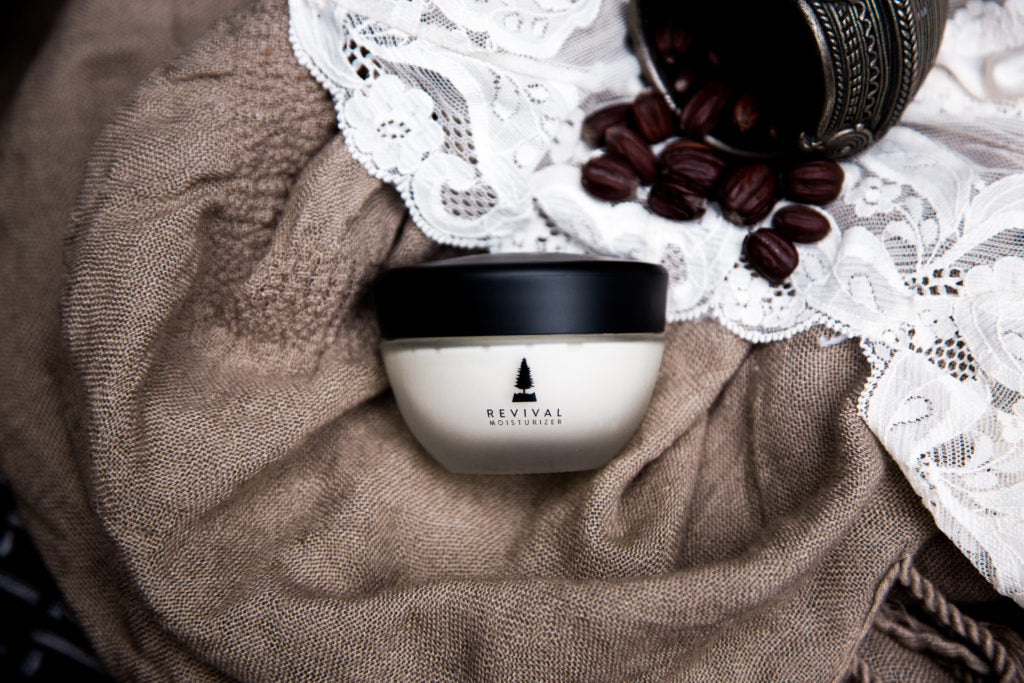
How to Moisturize Dry Skin Naturally
To halt flaking skin and dry, irritated patches of red, know you’re absolutely in the right place.
You’re ready to discover (finally) how to moisturize dry skin because - it’s incredibly frustrating, especially when going to apply makeup and skin is flaking. Not wanting to get too oily either (as that may cause clogged pores and acne), there must be a balance with moisture and shine alike.
In addition to sharing the little-known ways to moisturize your skin, we’re also going to divulge daily habits that excessively dry out skin - that most people don’t even realize.
Let’s start with the habits that are likely inciting dry skin right now - and then move into the glorious methods that will reveal how to moisturize dry skin naturally.
The habits (most don’t realize) irritate and cause dry skin
From what mom always did to what commercials have preached - even if meant well, we may have learned routines that actually damaging our skin and drying it out even further.
Long, hot showers with spirited scrubbing
Too much time using a loofah in the shower, especially with hot water, dries out the skin. Ironic as being bathed in water would think to be moisturizing, however, it carries the opposite effect.
“(Hot water) removes too much of your natural oils (much like it works better than cold water for cleaning greasy pots and pans)”, says Cynthia Bailey, M.D., a dermatologist in Northern California and founder of DrBaileySkinCare.com.
Rather than long spouts of bathing, it’s ideal to keep showers:
- Between 5 and 10 minutes
- With warm water, rather than steaming hot
- Using gentle cleansers without heavy fragrances - rather than overly fruity or perfume-heavy scents
After:
- Stepping out and reaching for the towel, dab your body graciously to dry rather than go into a whisking, sandpaper mode on your body, which can over-dry out skin, as well.
- You’ve dried off, apply a moisturizer to let your skin soak up the most moisture.
- Some dermatologists specify you have 3 minutes - within 3 minutes of a shower to moisturize!
Moisturizing products loaded with (surprisingly) harmful ingredients
When a lotion is packed with fragrances, alcohols and/or a long list of preservatives, the result is a chemical-loaded concoction that dries out skin.
The most startling part? Many products label themselves as being natural but may not be so. After all, the FDA has almost no regulations on what classifies a moisturizer as natural.
To learn more, discover → What Makes a Store-Bought Beauty Product “Natural”?
Using products meant to help get rid of acne -
Yet? Have harsh chemicals hurting one’s skin.
You may have (or even currently be using) a product that’s marketed as helping fight acne. Even if it’s claimed to be a great way to fight acne and a best way to moisturize skin - consider this.
After applying or scrubbing with the product, does your skin feel tight and mightily dry? That’s likely because of the chemicals and/or alcohols within it - upping the dry factor.
Look out for these specific substances, commonly found in many beauty products - that tend to try out the skin:
-
Retinol - Derived from Vitamin A, this in certain creams or gels can be incredibly strong and over-drying for more sensitive or dry skin.
-
Sodium lauryl sulfate - This ingredient, often found in face washes, messes with the natural balance of the facial oils and getting proper hydration.
-
Salicylic acid - This is incredibly common in over-the-counter / on-the-shelf products most often used in order to help fight acne. However, Kerri Daniels, New York-based makeup artists and consultant at Rodan + Fields Dermatologists, shares that salicylic acid can wreak havoc on acne. It's so strong that the harshness can actually have the reverse effect on acne, causing inflammation, and lead to excessive dryness.
-
Those “feel good” exfoliators - Scrubs that have “tingling” beads or particles that “scrub away the oil” seem like they’d be helpful support systems to our skin. The trouble is that these scrubs can be all too harsh and strip away vital natural oils, leaving the face incredibly dry. “Exfoliating beads are bad for acne because they inflame the skin, making the condition worse and more protracted,” says Mona Gohara, MD, dermatologist and Associate Clinical Professor at Yale University’s Department of Dermatology.
- Parabens, which may affect hormones - Parabens are an odd subject because while they do not have a wild amount of direct proof cited, they have been linked to other things - like estrogen. Influence on hormones is not only dangerous to skin but to the entire body function overall.
Evaluate the substance you’re covered in every day, without realizing it
When we think of substances we put on our bodies, we quickly go to thoughts of perfume and lotion - yet there’s one most forget:
Laundry detergent
Our clothes are soaked in the essence of what they were washed in. Certain perfumes, especially highly chemical ones, can be incredibly drying. Go for a laundry detergent that’s lower in chemicals and non-fragrance, which aggravates and irritates often, especially for dry skin.

The little-valued ways to moisturize dry skin naturally
Now that we’ve addressed the everyday products and rituals that can (accidentally) add to skin dryness and inflammation, let’s get into the transformative ways to moisturize skin naturally.
Hydrate nutritionally, as well as topically
In addition to paying attention to what you put on your skin through lotions, toners, makeup and other products - it’s key to remember that what we put into our bodies affects the skin, too.
While refined sugars, carbs and snacks packed with preservatives (sadly) aren’t the best friend for your epidermis, here are wonderful and delicious foods that can help heal skin.
-
Coconut - This delicious produce has healthy fats + antibacterial properties help fight acne.
-
Fatty fish - Fatty fish like salmon is loaded with omega-3 fatty acids (it’s even thought that these fats reduce inflammation, which helps fight acne and skin conditions like psoriasis)
- Avocado - Studies have shown fantastic skin improvement from eating avocado. In one study of 700+ women, as shared via the US National Library of Medicine, those who took a higher level of dietary fat and vegetables (like avocado) had a lessening in wrinkles, particularly around the eyes.
-
Sweet potatoes - These delicious root vegetables, which are absolutely fantastic in a variety of ways from baked to grilled to the base of a soup, are loaded with beta-carotene, which helps protect the skin from sun damage, including skin cancer, as well as help with anti-aging.
-
Dark chocolate - When selecting varieties of chocolate that are at least 70% cocoa, you can maximize the incredible effects cocoa has on the skin. Studies are even showing that phytochemicals within cocoa are powerful for protecting the skin, such as from a sunburn.
- Walnuts - These nuts are packed with fatty acids, as well as Zinc, which helps build up the barrier of your skin. It’s why you may have seen the white tubs of Zinc (or used them yourself) for a day at the beach - like many lifeguards sport!
Adjust based on the weather
Different seasons have different effects on the skin. Certain routines may not be necessary in summer - that are extremely beneficial in drier, colder winter months. As seasons change, ensure you’re eating more of the right foods, drinking water and using moisturizer as needed.
Be careful - certain moisturizers will worsen the skin
You purchase moisturizer to make sure your skin is more luscious and hydrated - not dry and flaking. It’s startling but important to know that not all moisturizers are created equal.
This is a major roadblock for most in how to moisturize dry skin.

When evaluating lotions and moisturizers, or really any products for the face, make sure to read the ingredients. If there’s a long list of ingredients that are hard to pronounce and sound like something that would be in a testing lab or science experiment, that’s likely a chemical. Even chemicals meant to moisturize often do the opposite and draw the moisture out from the skin instead.
Make natural-ingredient moisturizing a daily habit
If a product is highly water, that can be a sign it lacks the dense, richness necessary to give the best moisture. (This likely means it’s a watered down substance.)
The best way to moisturize dry skin? You want to seek a moisturizer with natural ingredients that your body will be able to recognize and absorb - ready to replenish without drying side effects.
Here’s the perfect example for what to try for yourself → The all-vegan moisturizer that truly nourishes, if applied 2x a day.


